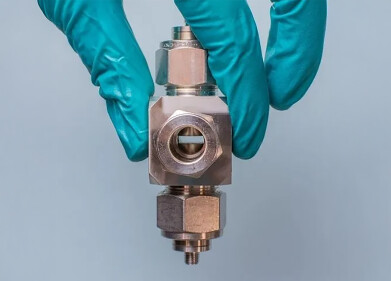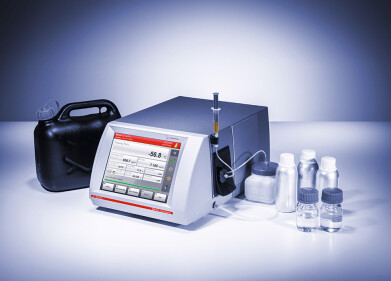Analytical Instrumentation
Expandable Control Platform (XCP) provides functional system control for octane and cetane rating units and ISO/IEC 17025 compliance
Apr 29 2022
CFR’s expandable control platform (XCP) provides a powerful means of controlling the functional systems of the CFR F1/F2 octane rating units and F5 engines cetane rating units as well as capturing process data and storing it in a readily accessible database for later retrieval. CFR Engines process capability ensures conformance to ASTM D2699, D2700, D2885 and D613. With the necessity of today’s labs to comply with the requirements of ISO/IEC 17025, it is ever more important to accurately control process parameters and to ensure that systems are calibrated in a timely manner with accurate records of calibration.
As an example, maintaining a steady mixture manifold temperature is important to obtain repeatable octane ratings on the F2 (MON) engines. From temperature tuning, it is understood that changing the mixture manifold temperature by 2°F can change the octane number by 0.1 when using an analogue meter. If the temperature is not well maintained to the setpoint, the engine may not pass fit-for-use testing.
To meet the requirements, engineers commonly turn to PID controllers. PID stands for Proportional, Integral, and Derivative. The PID controller will have a value, referred to as gain, assigned to each term. While these values could be determined theoretically, if an accurate mathematical model of the system existed, this is rarely the case, and instead, empirical methods are used to “tune” the controller to meet the desired performance. The mixture manifold temperature should heat to its setpoint and reach steady state quickly with minimal steady state error. Error is simply the difference between the set point and the measured value. The controller will run in a continuous loop with the following steps:
• Measure the value
• Calculate the error and new output value
• Update the output
• Wait some amount of time…and then repeat
While the amount wait time will vary for each application, one simple rule is not to run the controller faster than the input can be measured or the output can be set. In the case of XCP, the hardware input has a refresh rate of 1.25 Hz, therefore, the control loop should be programmed to execute at a maximum rate of 1 Hz. Each time the control loop executes, how the controller responds to each of the gain values can be thought of as follows:
• Proportional – What is the error right now?
• Integral – What has the error been over the previous N number of loops?
• Derivative – How quickly is the error changing?
With an understanding of these elements, the temperature controller can be tuned with relative ease.
There is always the inescapable formula of garbage in equals garbage out. Regardless of how well the controller is tuned, if the sensor is not producing accurate values, the temperature will not be accurately controlled. The controller should be programmed to respond appropriately and safely if issues with the sensor (RTD) or actuator (heater) are detected. The mixture temperature should never change more than a few degrees every second, even with the heater on full power. If the temperature is changing rapidly, it would indicate a faulty RTD or a fault in the wiring. In either case, the controller should respond by removing power from the heater and signalling an error to the operator. The same idea applies to the heater. If the controller is set to full power, yet the temperature is not increasing, either the heater is bad, there is a fault in the wiring, or the actual temperature is unreliable. One simple example is when two RTDs are connected to the incorrect input receptacles. The controller should recognize this as a fault, turn off the power to the heater, and report the condition to the operator.
The XCP panel from CFR Engines, Inc. includes the capabilities outlined above to control the three heaters of the CFR engine. Using the XCP software has the additional benefit of automatically including the temperature set points and measured values into the rating report.
Digital Edition
PIN 25.5 Oct/Nov 2024
November 2024
Analytical Instrumentation - Picturing Viscosity – How Can a Viscometer or a Rheometer Benefit You? - Sustainable Grease Formulations: Evaluating Key Performance Parameters and Testing Method...
View all digital editions
Events
Nov 27 2024 Istanbul, Turkey
Biogas Convention & Trade Fair 2024
Nov 27 2024 Hanover, Germany
Dec 03 2024 Dusseldorf, Germany
Dec 08 2024 Anaheim, CA, USA
Turkey & Black Sea Oil and Gas
Dec 11 2024 Istanbul, Turkey



















